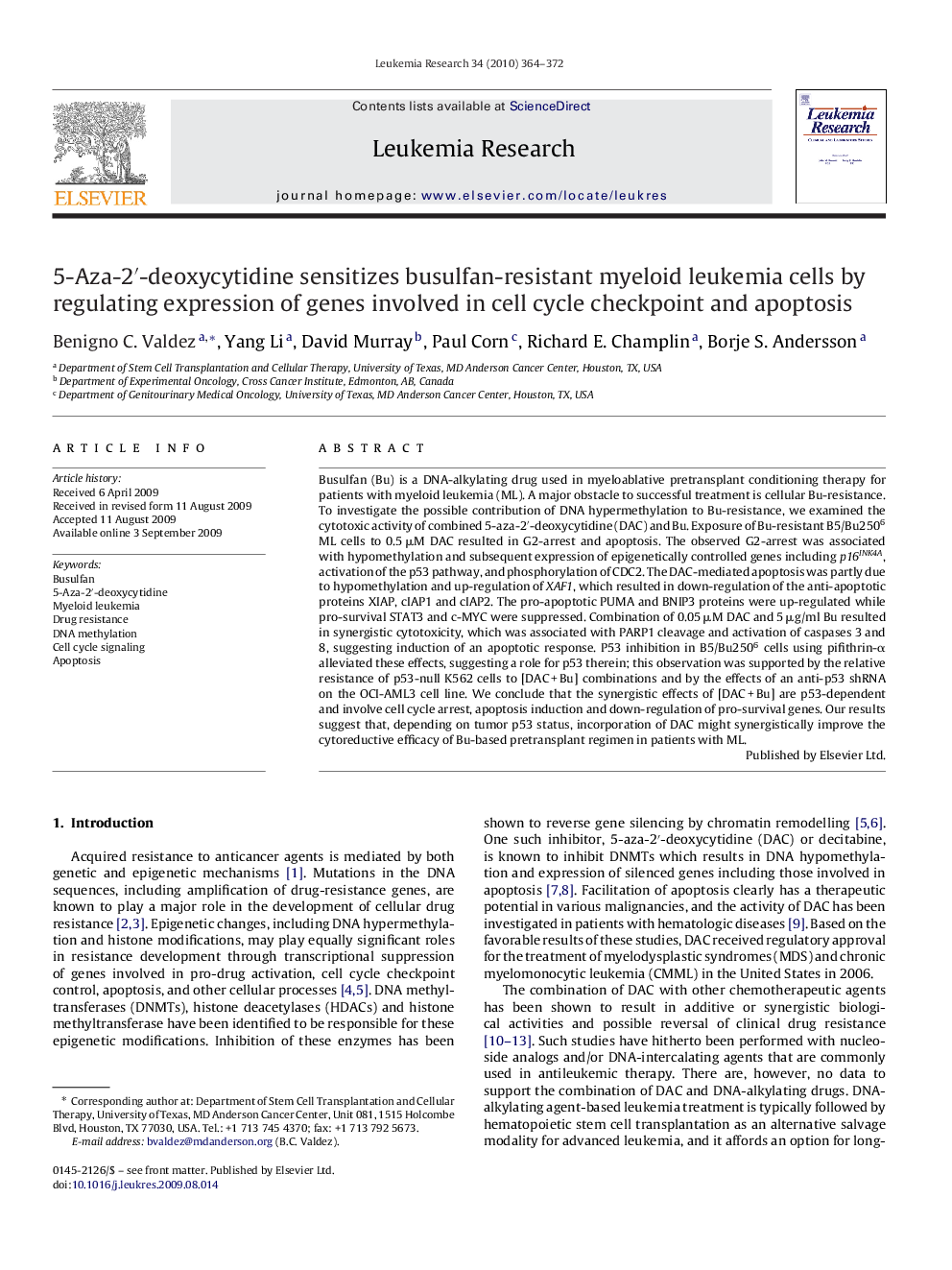| Article ID | Journal | Published Year | Pages | File Type |
|---|---|---|---|---|
| 2138743 | Leukemia Research | 2010 | 9 Pages |
Busulfan (Bu) is a DNA-alkylating drug used in myeloablative pretransplant conditioning therapy for patients with myeloid leukemia (ML). A major obstacle to successful treatment is cellular Bu-resistance. To investigate the possible contribution of DNA hypermethylation to Bu-resistance, we examined the cytotoxic activity of combined 5-aza-2′-deoxycytidine (DAC) and Bu. Exposure of Bu-resistant B5/Bu2506 ML cells to 0.5 μM DAC resulted in G2-arrest and apoptosis. The observed G2-arrest was associated with hypomethylation and subsequent expression of epigenetically controlled genes including p16INK4A, activation of the p53 pathway, and phosphorylation of CDC2. The DAC-mediated apoptosis was partly due to hypomethylation and up-regulation of XAF1, which resulted in down-regulation of the anti-apoptotic proteins XIAP, cIAP1 and cIAP2. The pro-apoptotic PUMA and BNIP3 proteins were up-regulated while pro-survival STAT3 and c-MYC were suppressed. Combination of 0.05 μM DAC and 5 μg/ml Bu resulted in synergistic cytotoxicity, which was associated with PARP1 cleavage and activation of caspases 3 and 8, suggesting induction of an apoptotic response. P53 inhibition in B5/Bu2506 cells using pifithrin-α alleviated these effects, suggesting a role for p53 therein; this observation was supported by the relative resistance of p53-null K562 cells to [DAC + Bu] combinations and by the effects of an anti-p53 shRNA on the OCI-AML3 cell line. We conclude that the synergistic effects of [DAC + Bu] are p53-dependent and involve cell cycle arrest, apoptosis induction and down-regulation of pro-survival genes. Our results suggest that, depending on tumor p53 status, incorporation of DAC might synergistically improve the cytoreductive efficacy of Bu-based pretransplant regimen in patients with ML.
